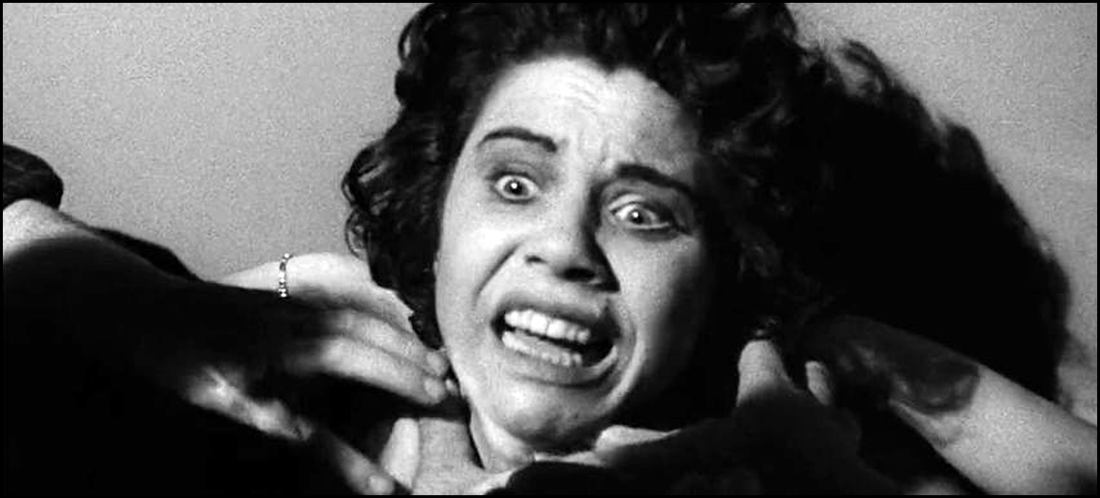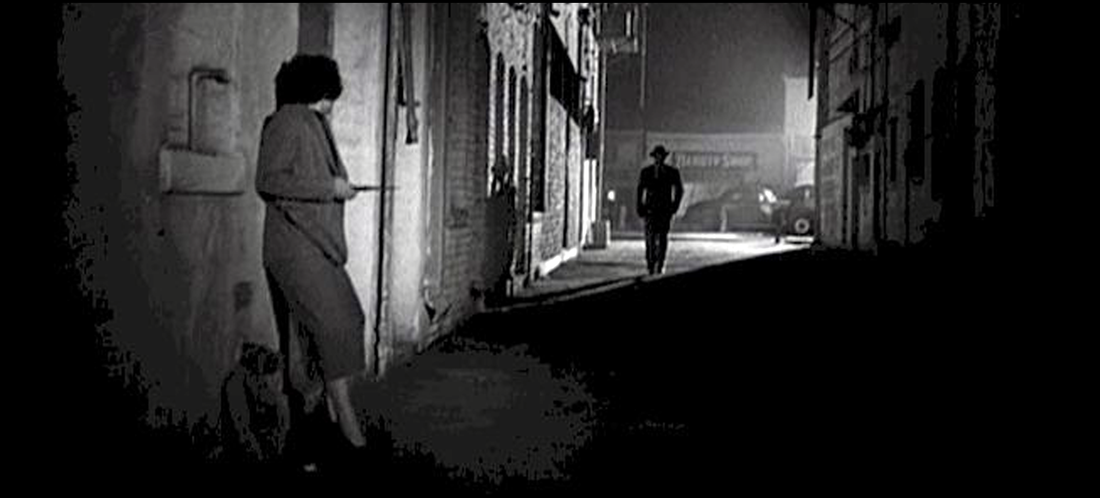Honestly, I don’t remember all that much about the experience, but I do recall speaking with one of the professors afterwards. He had pulled me over and wanted to praise me privately for what he termed as ‘not following in the footsteps of traditional young storytellers.’ When I asked for clarification, he explained that it was his experience that fledgling writers just starting out with their ‘voice’ typically spend a wealth of time creating characters who bark and howl for no other reason than to bark and howl. He stressed that while he wasn’t opposed to such unchecked emotion, he felt that young writers – in particular – ended up really experimenting more with storytelling as an art form in lieu of really telling a story.
I better understood his position once I viewed a few of the other works in the festival. Clearly, some of my peers were using their various projects more as personal vision quests than they were creating a story with a discernable beginning, middle, end, and point. A moral to the story. While there were road signs here or there about what some of the scripts meant, the pattern he identified couldn’t be discounted. Some folks just wanted to write – not that there’s anything wrong with that – leaving what to make of their work entirely up in the air. My instructors had taught me differently, and I think that tutelage came across in my work.
Occasionally, experimental films suffer this same prognosis: they’re brilliant threads in search of a tapestry. A needlepoint might be good to look at – it might weave and blend colors in a magnificent fashion – but that doesn’t mean you want it hanging on your wall. Am I right?
And if there’s ever been a film that’s felt more obviously experimental than Dementia (1955), then I’ve likely not seen it.
(NOTE: The following review will contain minor spoilers necessary solely for the discussion of plot and/or characters. If you’re the type of reader who prefers a review entirely spoiler-free, then I’d encourage you to skip down to the last few paragraphs for the final assessment. If, however, you’re accepting of a few modest hints at ‘things to come,’ then read on …)
“Set entirely in a nocturnal twilight zone that blends dream imagery with the cinematic stylings of film noir, Dementia follows the tormented existence of a young woman haunted by the horrors of her youth, which transformed her into a stiletto-wielding, man-hating beatnik …”
There’s a bit more, honestly, but it gets a bit too deeply into the weeds as well as reveals a bit of subtext I didn’t find all that helpful, so I’m leaving it at that. Suffice it to say, Dementia is aptly titled: a kind of whacked out trip into what may have been a young woman’s worst night ever, a dream-state recreation of it, or (sadly) little more than the figments of some fevered imagination all adding up to whatever you make of it. Curiously, the film contains no spoken dialogue – it all plays out like a kinda/sorta silent film (without the insert cards) set entirely to music with only the occasional sound effects – but it’s easy to follow. While I’m always a fan of storytellers telling and me deciding what to make of it, this film pushed the limits of what I’ve seen attempted before, so maybe a bit of factual recounting is necessary before my thoughts.
From what I’ve learned, Dementia is the only film writer/director John Parker ever made. As the story goes, his secretary Adrienne Barrett – the leading lady only known as ‘The Gamin’ here – recounted one of her dreams to him. (FYI: apparently, ‘gamin’ means ‘street urchin,’ and I suspect that may figure into the plot.) So inspired by the tale she told, Parker decided it had to be filmed. Using his family connections, he secured funding, coopting the collaboration of actor/director/writer Bruno VeSota, and the end result is this 56-minute ‘masterpiece’ or ‘disasterpiece,’ depending upon your perspective. Also from what I’ve read, it was originally shot in 1953 but couldn’t pass ratings board for two years due to its – ahem – controversial content.
Today, there’s probably very little in Dementia that would offend audiences. Standards and mores have changed over the years, and what was objectionable five or six decades ago is a bit passe for a generation that has sat through William Friedkin’s The Exorcist – much less Stuart Gordon’s Re-Animator – and lived to tell about it. Also, keeping in mind that Dementia is admittedly inspired by and about a dream, I think what takes place between its opening and closing is left largely up to interpretation of the audience anyway. But being shot in the 1950’s it’s easy to see how the tale’s curious depiction on sex, violence, and things that go bump in the night met some resistance.
Stylistically, the film is (mostly) a delight to behold. While I’d argue of few of the late sequences go on a bit long, the ride moves at an otherwise appreciable rate. The Gamin sets about her ‘night on the town,’ and – while it’s a bit unclear exactly what she’s looking for – it becomes clear that others have intents upon her. There are hints that she’s involved in a kinda/sorta twisted version of prostitution, but the men who hire her don’t seem much interested in sex as they do a good chicken dinner. (Trust me: you’ll get the joke.) Perhaps their inability to express authentic attention toward her is what inevitably pushes her into a life of crime – or is that vice versa? – or maybe her choices are all tied back to the flawed parenting of a lascivious mother and an alcoholic father. Watch closely, and you’re bound to see that some identities change throughout the story. Thus, it’s hard to reach any single conclusion about these various depictions other than to suggest – much like life – some people are destined to wear many hats.
Sigh.
Come the big finish, she got the hand up she really needed, though. I’ll say that for her.
Dementia (1955) was produced by J.J. Parker Productions. DVD distribution (for this particular release) is being coordinated by the Cohen Media Group. As for the technical specifications? The packaging asserts that this is the original cut of the film digitally remastered from the 35MM negative, and – despite some graininess in the opening sequence – it looks quite good. As for the special features? Well … the disc boasts a pair of trailers (one regarding the original release and one designed for the restored print) along with an alternate cut of the film retitled ‘Daughter Of Horror,’ a version which includes some narration (not that it helps all that much). Given the – erm – professed cerebral nature of the flick, I honestly expected more … but you get what you get.
Recommended. Perhaps of all the films I had the good fortune to see in all of my years of reviewing them, Dementia (1953) is one of the more bizarre experiences. All I can truly say is that you must make of it what you will. It’s clearly part-Horror, part-noir, and part-experimental, but it’s hard to suggest that the total of its parts delivers a consistent message. At times, it’s anti-men. At times, it’s debatably anti-women. With an idea that originated from a dream, perhaps – like dreams – it really only means what you and your therapist might make of it … yet I’m not sure even that would see agreement.
As a last thought? I enjoyed Dementia, and I think if you’re a fan of old black-and-white films – especially noir – then you’ll enjoy it, too. This isn’t to say that it won’t frustrate you. This isn’t to say that it won’t tempt you to turn it off in a place or two. But this is exactly the kind of film I can watch once, give it a modest thumbs up, and not feel guilty about. After all, it’s only sixty minutes of your life.
In the interests of fairness, I’m pleased to disclose that the fine folks at the Cohen Film Collection provided me with a complimentary Blu-ray of Dementia by request for the expressed purposes of completing this review; and their contribution to me in no way, shape, or form influenced my opinion of it.
-- EZ




 RSS Feed
RSS Feed